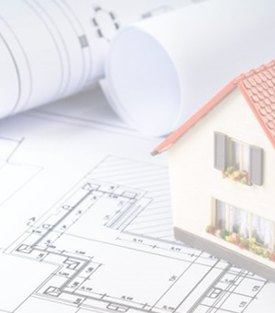
Considering investment as a key factor in promoting sustained solid economic growth, Morocco is constantly striving to make the investment environment even more attractive by unifying and simplifying procedures, introducing incentive measures and strengthening assistance to investors.
In this way, the Urban Planning Department is positioning itself as an essential partner of this major project that aims at promoting investment and supporting urbanisation and urban development through providing technical and urbanistic support for major structuring projects such as: new urban centres, urban projects, tourist resorts, major industrial and commercial projects, etc.
In addition and with a view to building socially acceptable, economically viable and ecologically responsible living spaces, these structuring projects are included within the framework of an integrated vision of urban planning and are the subject of preliminary studies for positioning and definition of vocations, impact assessment and multi-partner development strategy.
In a context marked by the increasing competitiveness of territories and their ability to attract capital and promote economic and social development and in light of the demographic and urban challenges, the supervision of urban building through adopting technical references and simplifying procedures for granting authorisations and planning permits has become a major priority for public authorities.
Aware of the added value that such reforms can generate, the Ministry of National Planning, Urban Planning, Housing and Urban Policy has embarked on a process to promote investment and improve the business climate through simplifying procedures.
The efforts made have led to the adoption of five General Regulations for Construction, namely:
- Decree no. 2-13-424 of 24 May 2013 (amended in 2019) approving the General Regulations for Construction establishing the form and the conditions for issuing authorisations and documents required under the legislation on urban planning, subdivisions, housing groups, and fragmentations and the texts implementing them
- The decree no. 2.14.499 of October 14, 2014 approving the General Regulations for Construction laying down the safety regulation against fire and panic hazards in buildings and establishing the national committee for the prevention of fire and panic risks in buildings
- Decree No. 2.13.874 of October 14, 2014 approving the General Regulations for Construction setting the rules for energy performance in buildings and establishing the national committee for energy performance in buildings;
- The decree no.2-12-666 of May 28, 2013 approving the earthquake-proof regulation for earthen constructions and establishing the national committee of earthen constructions ;
- Decree no.2-12-682 of 28 May 2013 amending the decree no.2-02-177 of 22 February 2002 approving the earthquake-proof construction regulation RPS 2000 and establishing the national committee for earthquake engineering.
These standards have thus contributed to establishing unified regulations and procedures, formalising and implementing technical rules and standards for security and energy performance. They also helped provide a solid foundation for the rules of good governance, enshrine the concept of single window, define the responsibilities of stakeholders, control deadlines, increase the involvement of professionals, establish paperless procedures and place the sector in a process of sustainability and resilience.



